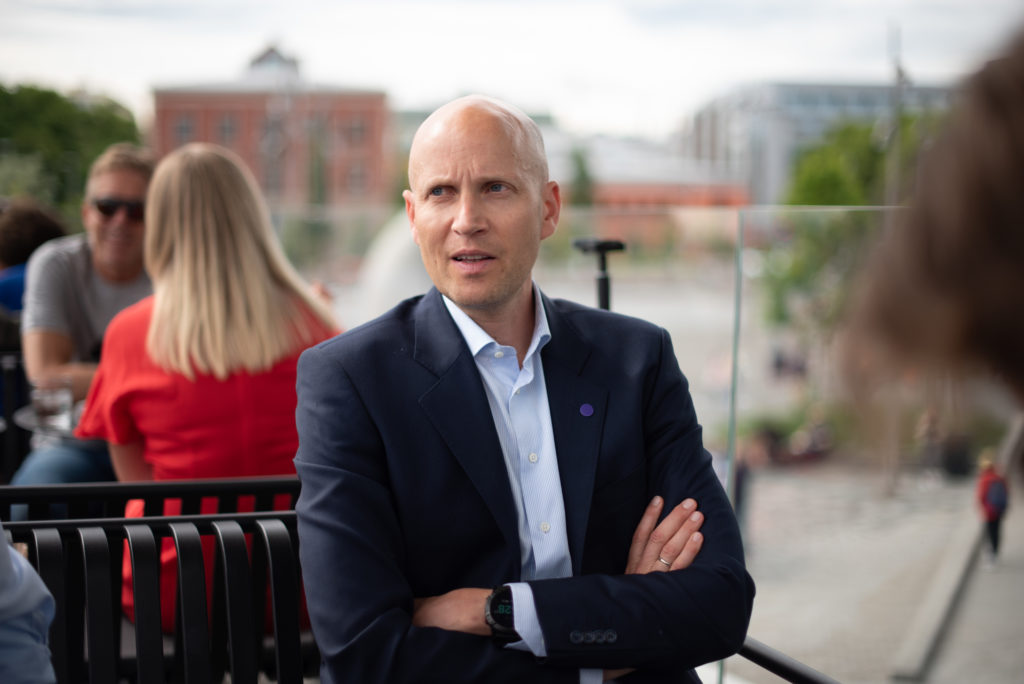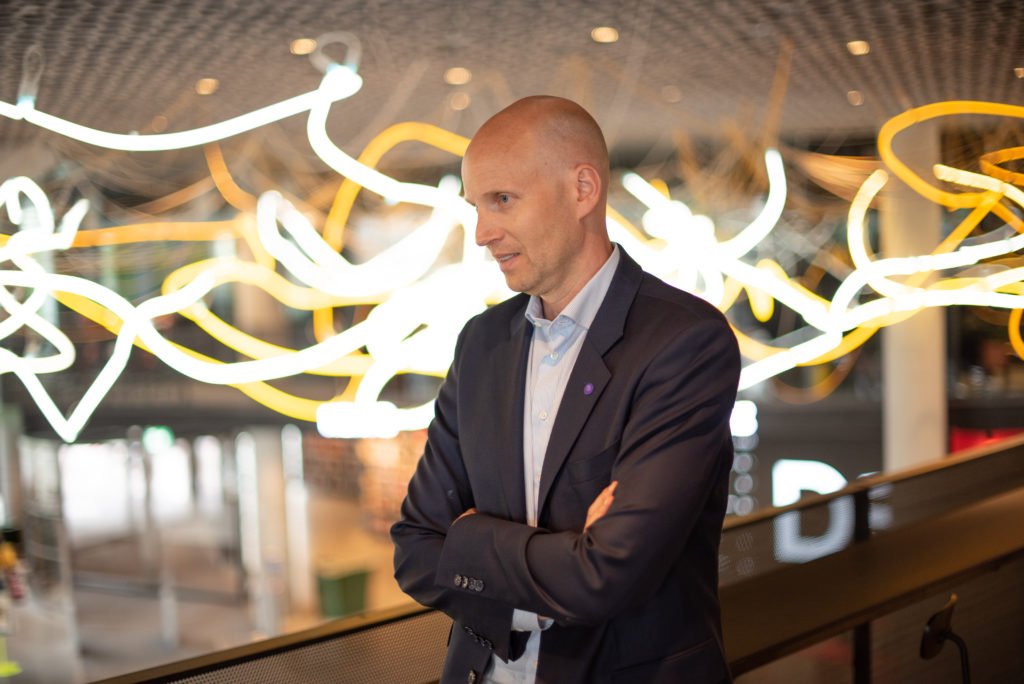Taking children to galleries and museums can be challenging. Often the only consolation is the bag from the gift shop with some fluffy toy in it, or the pencil and eraser (that never get used). As a young boy visiting Washington, Håkon Volldal remembers a certain moodiness after hours of browsing the exhibitions—but not because he was bored. “I realized just how little I knew,” he says.
The flip side to realizing your ignorance is to learn as much as you can, and it is this hunger for knowledge that has characterized the life of Nel’s new CEO. An engineer and economist by training, he has a voracious appetite for historical fiction and a finger that clicks keenly on the Wikipedia links that all too easily take us on weird and wonderful journeys of inquiry. With a corporate career spent in industries devoted to reducing waste and improving efficiency, he now takes on the mantle of leading Nel to dominance in the green-hydrogen supply chain.
“I live in Norway, a country with free education and healthcare, beautiful nature, low rates of crime. I have little to complain about. But what can I give back?”
– Håkon Volldal
What's good for Nel is good for society
It is a desire to contribute meaningfully to society that is the driving force behind Volldal’s great ambitions for Nel. “I look at myself and see a white, privileged male, nearing 50. I live in Norway, a country with free education and healthcare, beautiful nature, low rates of crime. I have little to complain about. But what can I give back?”
This is the rhetorical question that led Volldal to Nel. With a growing awareness of climate change and the impact of waste, it is no wonder he found his way to the leadership of a company that wants green hydrogen to be cost-competitive with fossil-fuel-derived alternatives by 2025. “I want to spend my professional life in companies that make the world a better place, and Nel is undoubtedly such a company,” he says. “Knowing that what is good for Nel is also good for society is very motivating and truly excites me.”


Positioned for progress
Earlier in his career, he worked for TOMRA, one of the world’s leading suppliers of recycling machines. He was part of the team that introduced the technology to Germany with the effect that, within a few years, the country was recycling 97% of its beverage containers. “That felt good. But then I read a piece in The Economist that said there would soon be as much plastic in the world’s oceans as the combined mass of all marine organisms. That was humbling,” he says.
A keen skier and lover of the outdoors, Volldal has also noticed Norway’s environment change. Bad snow conditions in winter might seem trivial while parts of the world sizzle in over 50C heat, but it is the change that affects people’s lives directly that is most impactful. “The combination of the ‘local reality’, and the many EU-led initiatives like RePowerEU and Fit for 55 means that we are in a great position to make progress—if we have better, smarter leaders,” Volldal says.
“I read a piece in The Economist that said there would soon be as much plastic in the world’s oceans as the combined mass of all marine organisms. That was humbling.”
A pragmatic leader
So what kind of leader is Volldal? To answer that question, it helps to go back a few years. Even as a child, Nel’s new CEO showed himself to be a budding leader. “I always had an opinion. I couldn’t bear to watch my father muddle through the installation of some home technology like a new TV or satellite dish. I would tell him to go to the kitchen, to let me sort it out!” he says.
That instinct for leadership, for taking control of a situation, has found refinement over the years. “I have learned to hold my horses, to know when to step in and when just to let things continue as they are,” he says. He has also learned the flexibility that good leaders must demonstrate. Some people want to be managed, others just want to be shown an aim and be supported in achieving that goal.
The best learning comes from making mistakes, and Volldal recalls starting a new leadership position back in his TOMRA days. He marched into the office and presented his preferred strategy to his colleagues. After several hours’ monologue, he looked round to see his team deflated and unmotivated. They admitted they had found his ideas boring, and that they felt he had little trust in them.
His solution was to let them revise the plan. “After those three days of discussion, everyone was much happier. They had a stake in the game once again,” he says.
Giving back to society
To understand more of Volldal as a leader, it also helps to see that the man in the suit at work is the same as the man in slippers at home. He has two daughters of 12 and 16. It is important for him to be a father they can trust, and somebody they can always rely on to be there when they need him. But a father also needs to know when to step away. “You have to let go of your kids, hard as that is,” he says.
He talks of leading colleagues in much the same way. When asked about the kind of leader he wants to be seen as, “genuine” is the first word to come from his mouth. “Pragmatic” would surely be the second. “As a leader, you need to be happy with a good decision – one that might not be optimal – and then be prepared to refine it as time goes by,” he says. With the speed of transition as it is, not just in a child’s life, but in the 21st century world in general, this is a philosophy that surely anybody can identify with.
The pace with which Nel will have to move ahead may seem daunting, but Volldal thinks you need a certain level of stress to be motivated, as athletes have when they stand on the start line at the beginning of a race. “But you don’t want too much of that: too much tension leads to fear, and fear is a block,” he says.
While he prefers solitary pursuits like skiing and running for rest and recuperation, he is a team sportsman when it comes to working life. He recognizes that a successful outcome in business relies on many hands. But whatever the type of athlete, it is common knowledge putting the time into training and refining technique is the essential groundwork. Success is then a matter of mindset, and the nature of the competition.
Undoubtedly, Volldal’s mindset is in the right place for Nel as the company takes on stiff global competition. But with focus on core product areas and markets, the new CEO is convinced that Nel can reach its full potential, and play a leading role in the green transition. Anything less would be to fall short of the very personal motivation Volldal has for giving back to society. It is for the sake of people, planet—and profit, without which no transformation in any industry can happen.